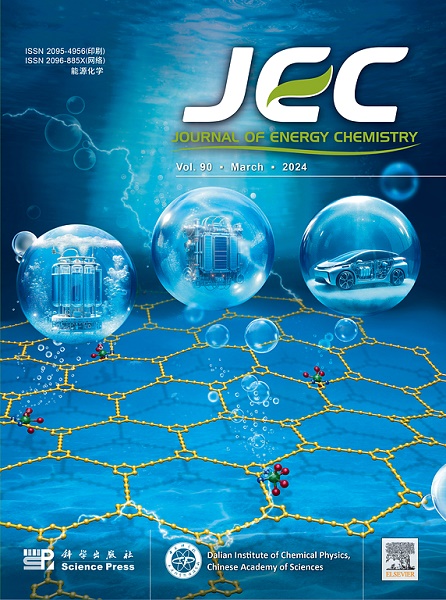下一代电池安全管理:机器学习辅助寿命预测和性能增强
IF 13.1
1区 化学
Q1 Energy
引用次数: 0
摘要
电池在可持续能源的储存和应用中发挥着至关重要的作用,但其固有的安全风险不容忽视。传统的监控方法往往存在成本高、耗时长、可扩展性有限等问题,越来越难以满足现代社会不断发展的需求。在这种背景下,机器学习技术的最新进展已经成为预测和监测电池状态的有前途的解决方案,为电池管理系统(BMS)提供了创新的方法。通过将原始操作数据转化为可操作的见解,机器学习将电池安全管理模式从被动模式转变为预测性模式,显著提高了系统可靠性和风险缓解能力。这篇综述深入探讨了机器学习在电池状态预测中的实现,包括数据集选择、特征提取和模型训练。它还重点介绍了这些模型在健康状态(SOH)、充电状态(SOC)、热失控预警、故障检测和剩余使用寿命(RUL)等关键应用中的最新进展。最后,我们仔细研究了利用机器学习来提高电池安全性和性能的挑战和机遇,为这个快速发展的领域的未来研究提供了一个全面的视角。本文章由计算机程序翻译,如有差异,请以英文原文为准。

Next-generation battery safety management: machine learning assisted life-time prediction and performance enhancement
Batteries play a crucial role in the storage and application of sustainable energy, yet their inherent safety risks are non-negligible. Traditional monitoring methods often suffer from high costs, time consumption, and limited scalability, making it increasingly difficult to meet the evolving demands of modern society. In this context, recent advancements in machine learning technology have emerged as a promising solution for predicting and monitoring battery states, offering innovative approaches to battery management systems (BMS). By transforming raw operational data into actionable insights, machine learning has shifted the paradigm from reactive to predictive battery safety management, significantly enhancing system reliability and risk mitigation capabilities. This review delves into the implementation of machine learning in battery state prediction, including dataset selection, feature extraction, and model training. It also highlights the latest progress of these models in key applications such as state of health (SOH), state of charge (SOC), thermal runaway warning, fault detection, and remaining useful life (RUL). Finally, we critically examined the challenges and opportunities associated with leveraging machine learning to improve battery safety and performance, providing a comprehensive perspective for future research in this rapidly advancing field.
求助全文
通过发布文献求助,成功后即可免费获取论文全文。
去求助
来源期刊

Journal of Energy Chemistry
CHEMISTRY, APPLIED-CHEMISTRY, PHYSICAL
CiteScore
19.10
自引率
8.40%
发文量
3631
审稿时长
15 days
期刊介绍:
The Journal of Energy Chemistry, the official publication of Science Press and the Dalian Institute of Chemical Physics, Chinese Academy of Sciences, serves as a platform for reporting creative research and innovative applications in energy chemistry. It mainly reports on creative researches and innovative applications of chemical conversions of fossil energy, carbon dioxide, electrochemical energy and hydrogen energy, as well as the conversions of biomass and solar energy related with chemical issues to promote academic exchanges in the field of energy chemistry and to accelerate the exploration, research and development of energy science and technologies.
This journal focuses on original research papers covering various topics within energy chemistry worldwide, including:
Optimized utilization of fossil energy
Hydrogen energy
Conversion and storage of electrochemical energy
Capture, storage, and chemical conversion of carbon dioxide
Materials and nanotechnologies for energy conversion and storage
Chemistry in biomass conversion
Chemistry in the utilization of solar energy
 求助内容:
求助内容: 应助结果提醒方式:
应助结果提醒方式:


